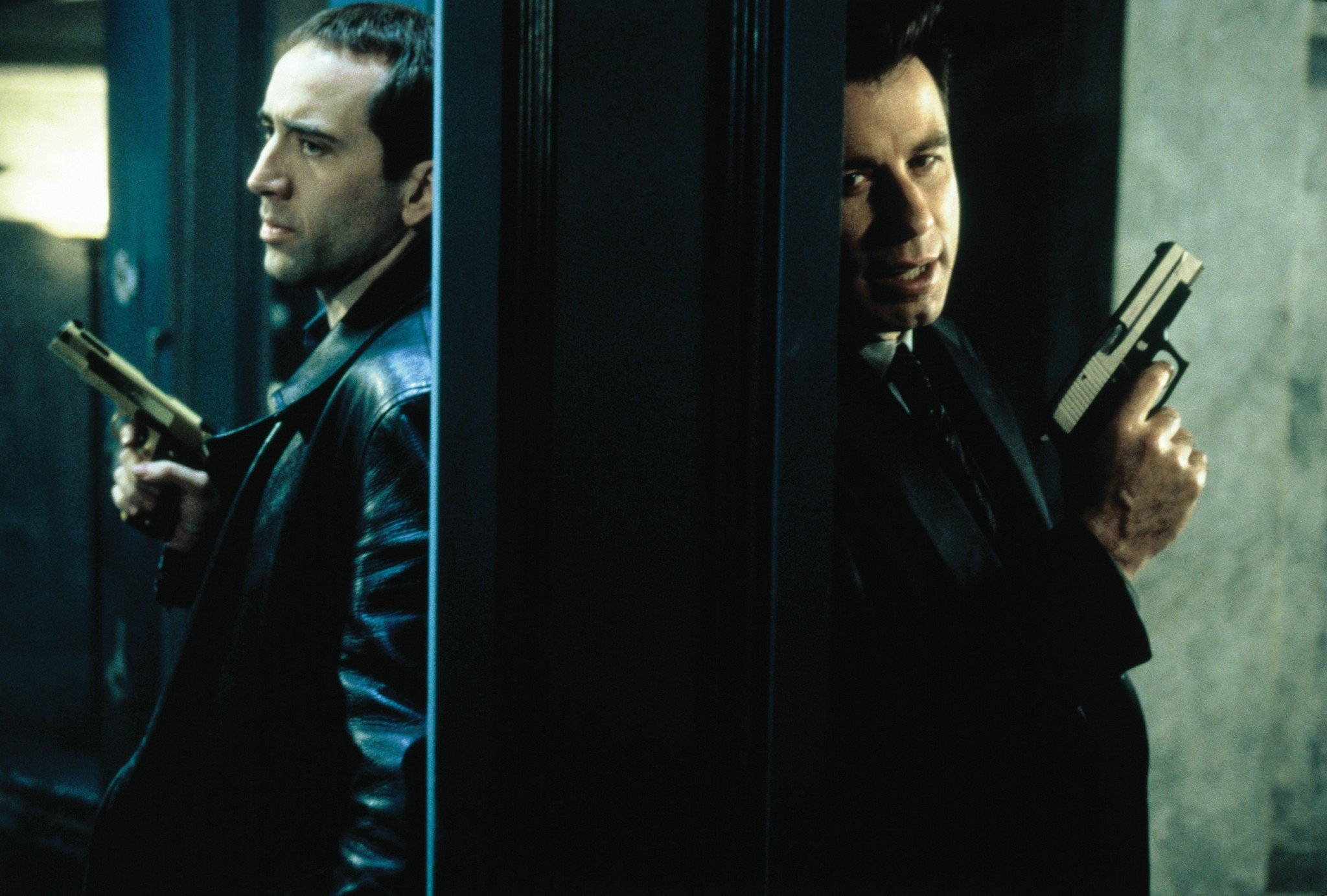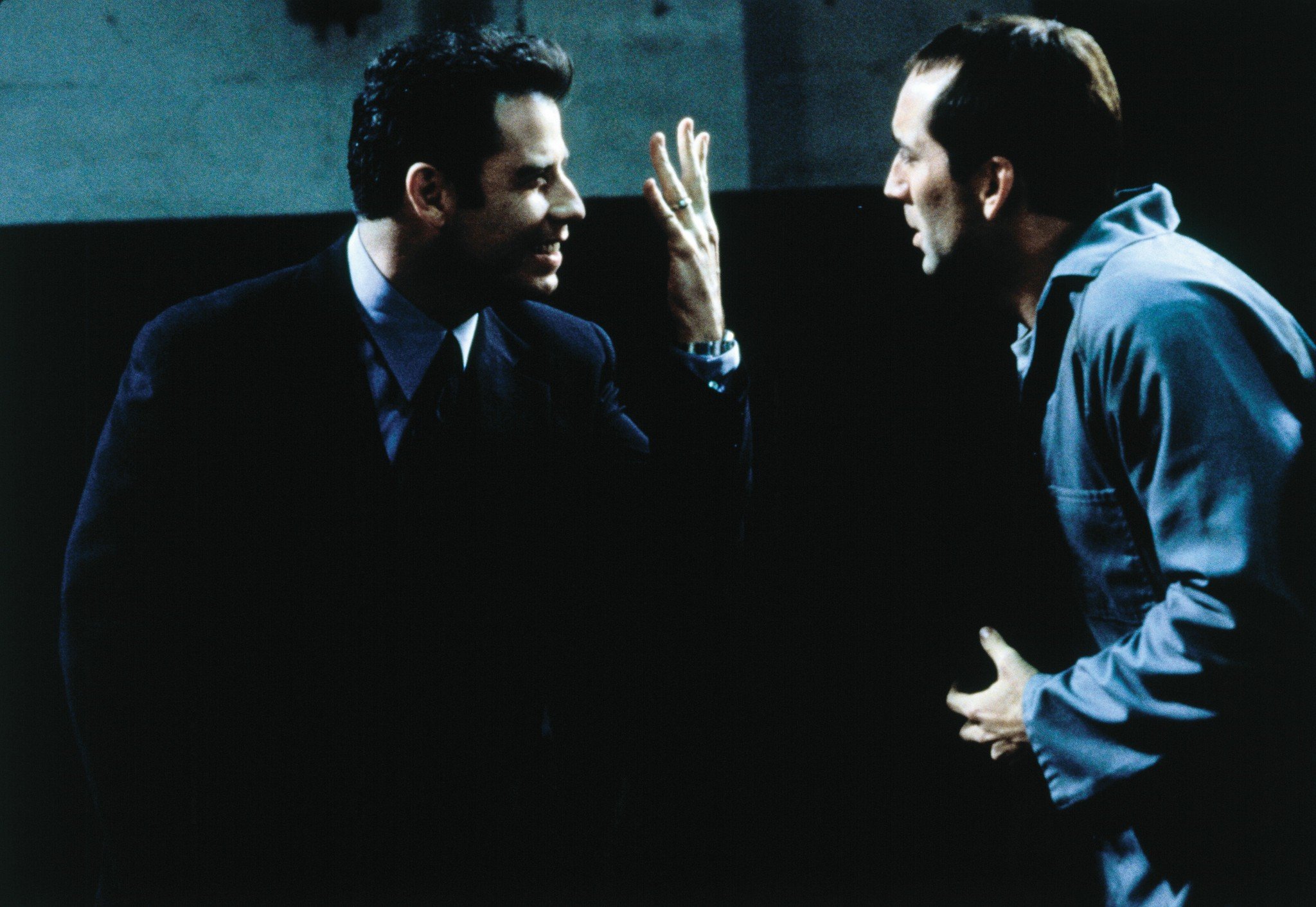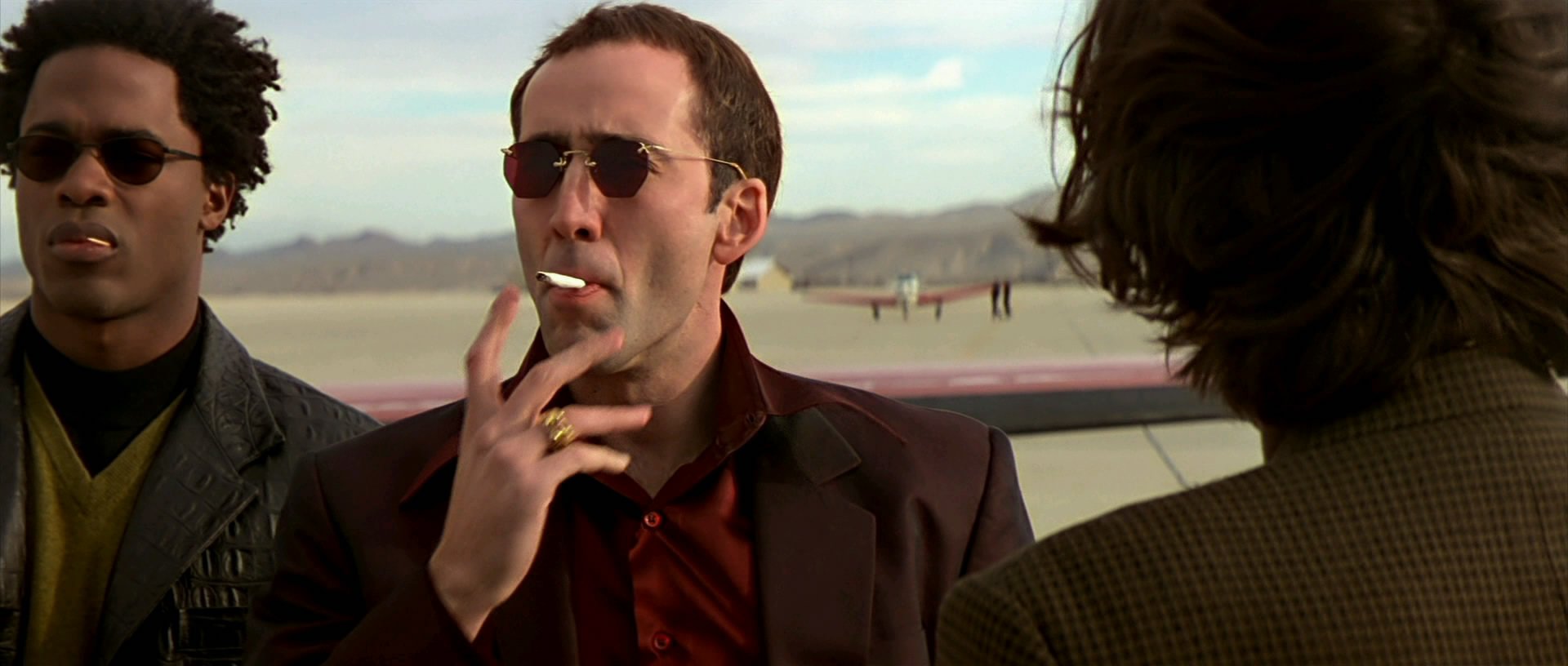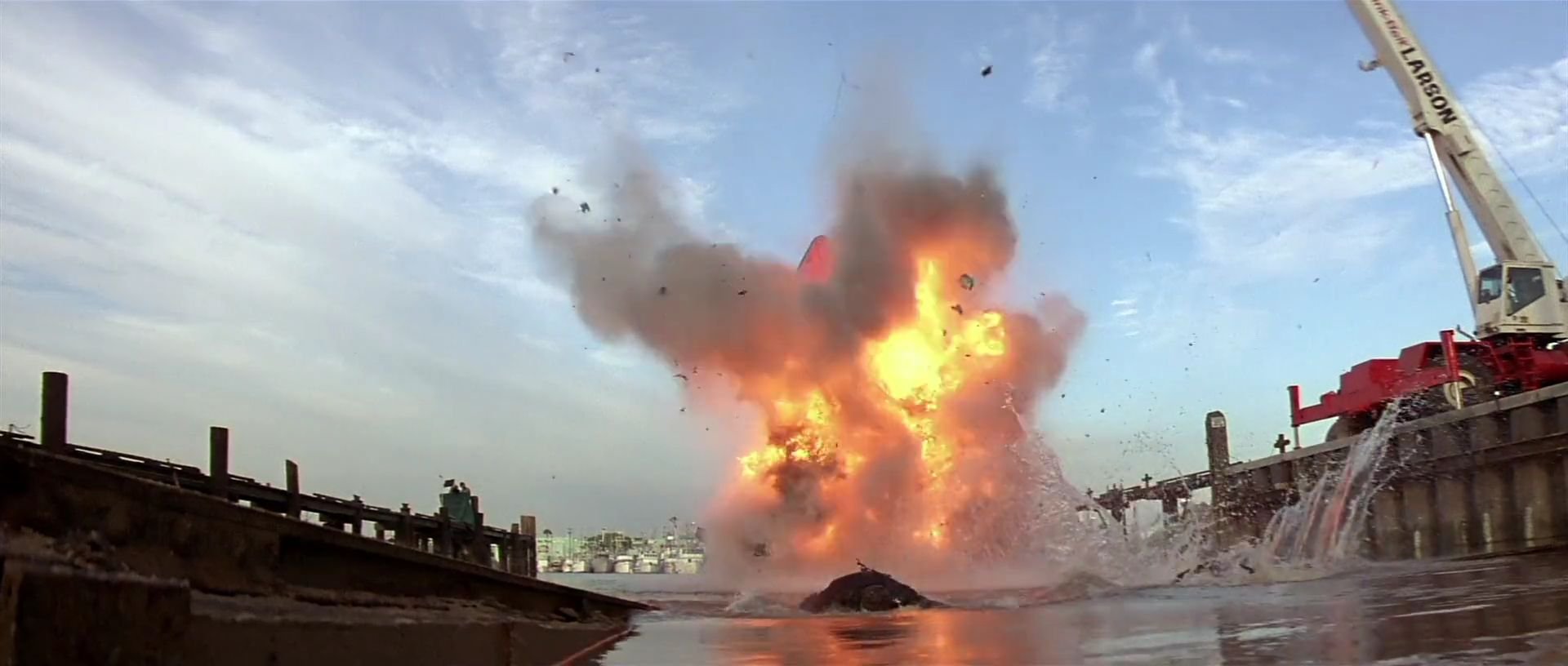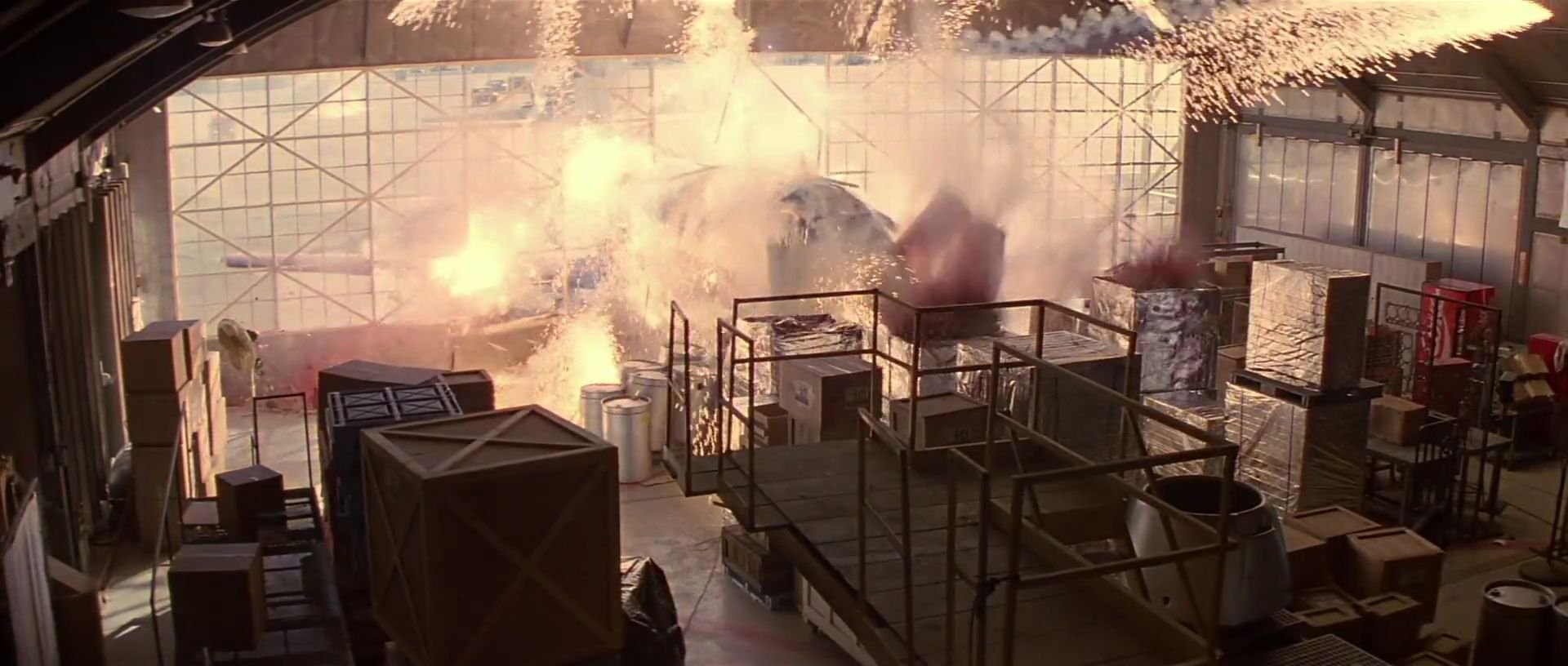Face/Off (1997)
Director: John Woo
Starring: John Travolta, Nicolas Cage, Joan Allen, Alessandro Nivola
Primary genre: Action
Secondary genre: Thriller
Nominated for: Sound effects editing
John Woo is one of the top five action directors of all time but his Hollywood transition was not as smooth as someone might have expected. Despite boasting a unique talent for balletic, energetic and highly stylistic gun violence (or “gun fu” if you will), Woo’s trademarks were toned down in his American outputs. Enter “Face/Off”, a career high (and at this point a cult) film for the beloved Hong Kong action auteur for several reasons.
The success of the movie’s ridiculous premise that sees a high profile psychotic criminal (Castor Troy) and an obsessed FBI agent (Sean Archer) change faces (and voice and body too!) lives or dies with its main duo. Setting up two actors to simultaneously rely on each other’s take for a consistent character representation is genius. Disregarding the more outrageous aspects of the script, its key concept is an excellent opportunity for any actor to go above and beyond and this is where “Face/Off” reaches for the stars. Cage and Travolta give career high performances, having the time of their life in many … face/offs that end up demolishing half of LA. with Cage (as Travolta) doing most of the heavy lifting dramatically, we rely on Travolta (as Cage) for fun and OTT antics, a wolf in sheep’s clothing that struts around happily with his famous big smile and the best lines (“It’s like looking in a mirror but NOT!“, “See anything YOU like?“).
The script does not forget to add a bit more substance to these two surrounding them with a solid supporting cast and interesting relationships even though there is a tendency towards melodrama. In a surprising twist both seem to like each other’s life precisely because they are so opposite; Travolta (as Cage) brings a much needed stability, romance and protection to a broken household as a carefree criminal while Cage (as Travolta) attempts to reconcile his opponent’s relationships empathetically. However, it is a shame that these are not explored further (e.g., Troy’s relationship with his brother) considering that there are many details that do not necessarily add anything else (i.e., the prison segment does seem to stop the momentum) and extend the running time. Nevertheless, Woo’s persistent direction shows Archer’s and Troy’s physical and internal duality with mirrors, colors, costumes, reflections and dynamic environments that change once the swap has happened.
With all his trademarks (e.g., pigeons, slow mo, black costumes, sun glasses, Mexican stand-offs, violence, bullet carnage, high body count, environmental duality) present and shinier due to the production values that Hollywood can offer, the action sequences remain nothing less than top notch. While they a bit subpar when compared to those in Woo’s Hong Kong filmography, they remain thrilling and expansive with a superb boat chase and a destructive penthouse shoot-out under Olivia Newton-John’s “Under the Rainbow” being the highlights. As one of the last films of the 90’s, “Face/Off” displays some spectacular stunts throughout even though it is obvious that Travolta and Cage are nowhere to be seen.
Occasionally, “Face/Off” feels like it overstays its welcome with a long running time, frequent halts and unbelievable premise but the performances of Cage and Travolta deserve the price of admission alone. If you include some explosive action set pieces under Woo’s meticulous direction that caters towards your unashamed adult fantasies of dual weapon yielding and bullet carnage, then it makes sense to think that “Face/Off” is not only a good action film, but probably one of the greatest action films of all time. Sure it might go overboard sometimes with the melodrama but then again this is a film about two dudes swapping faces and even love handles.
A 90’s cult classic
+Travolta and Cage!
+Cage and Travolta!
+Interesting dynamics and relationships
+Great action
+Especially the boat chase/fight
+Woo’s direction highlighting duality
+Hyperstylized violence
-Long running time
-Unbelievable (but who cares?)
-Obvious stunt doubles!
-Tendency to melodrama

